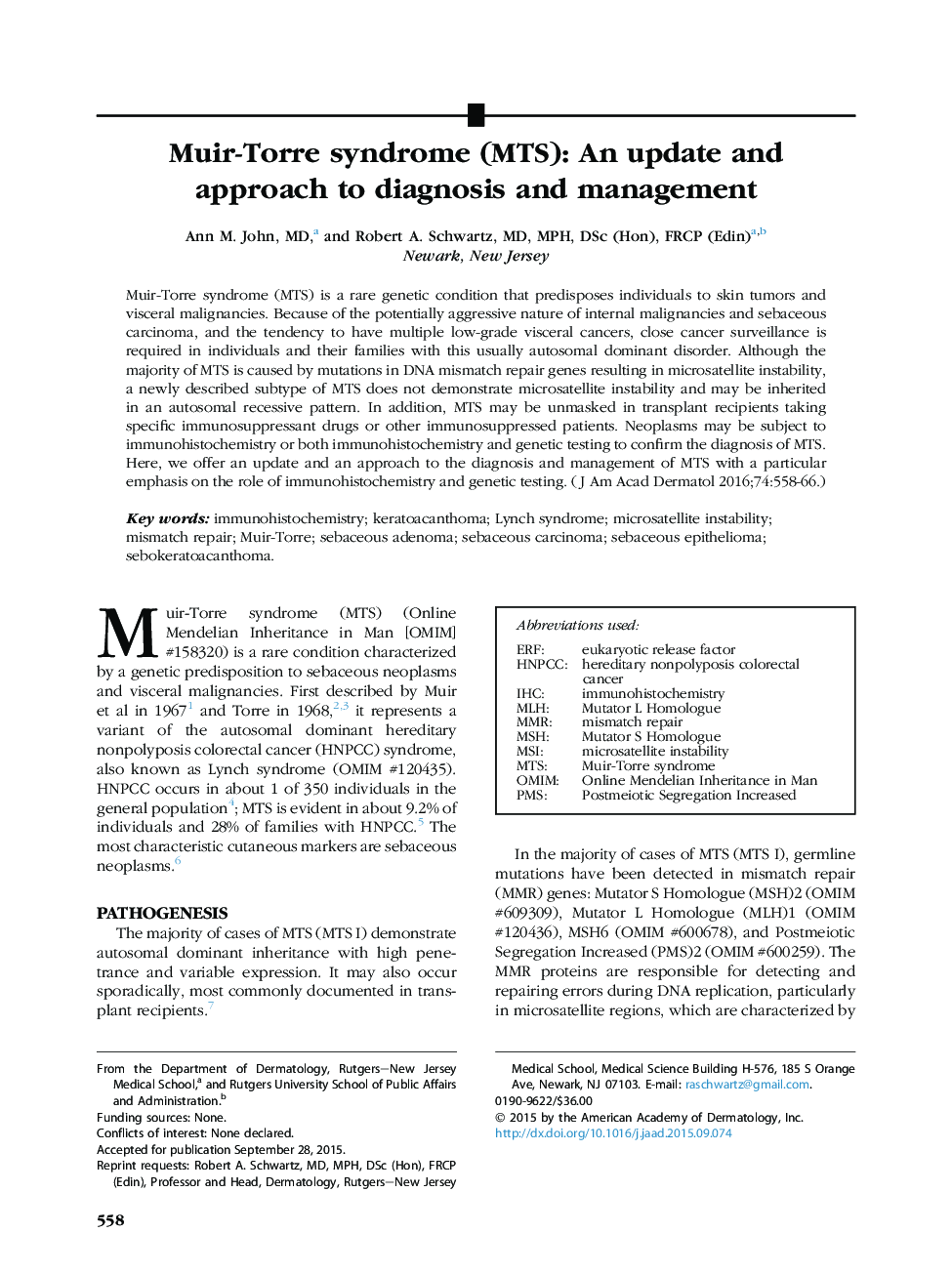| Article ID | Journal | Published Year | Pages | File Type |
|---|---|---|---|---|
| 6069931 | Journal of the American Academy of Dermatology | 2016 | 9 Pages |
Abstract
Muir-Torre syndrome (MTS) is a rare genetic condition that predisposes individuals to skin tumors and visceral malignancies. Because of the potentially aggressive nature of internal malignancies and sebaceous carcinoma, and the tendency to have multiple low-grade visceral cancers, close cancer surveillance is required in individuals and their families with this usually autosomal dominant disorder. Although the majority of MTS is caused by mutations in DNA mismatch repair genes resulting in microsatellite instability, a newly described subtype of MTS does not demonstrate microsatellite instability and may be inherited in an autosomal recessive pattern. In addition, MTS may be unmasked in transplant recipients taking specific immunosuppressant drugs or other immunosuppressed patients. Neoplasms may be subject to immunohistochemistry or both immunohistochemistry and genetic testing to confirm the diagnosis of MTS. Here, we offer an update and an approach to the diagnosis and management of MTS with a particular emphasis on the role of immunohistochemistry and genetic testing.
Keywords
eukaryotic release factorPMSERFMTSMLHMSIMMRHNPCCMSHOMIMSebaceous adenomaImmunohistochemistryIHCMicrosatellite instabilitymismatch repairsebaceous carcinomaHereditary Nonpolyposis Colorectal CancerMuir-Torre syndromeHereditary nonpolyposis colorectal cancer, Lynch syndromeOnline Mendelian Inheritance in ManKeratoacanthoma
Related Topics
Health Sciences
Medicine and Dentistry
Dermatology
Authors
Ann M. MD, Robert A. MD, MPH, DSc (Hon), FRCP (Edin),
